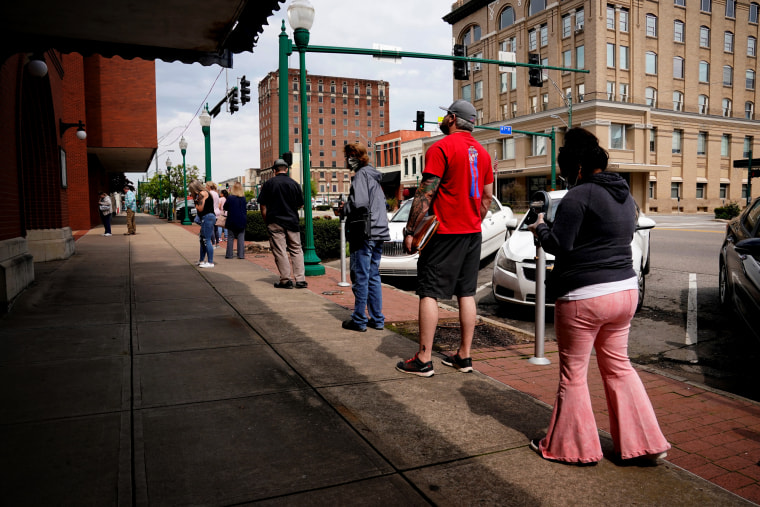The last three monthly jobs reports have been deeply discouraging. The employment landscape suffered a devastating blow last year, and with the economy struggling to recover, the United States remains in a deep hole.
This, coupled with similarly disheartening news on initial jobless claims prompted Federal Reserve Chair Jerome Powell -- whom Donald Trump selected for the job, and whom Senate Republicans helped confirm -- to deliver remarks yesterday in which he urged Congress to extend additional support to struggling Americans, offering at least tacit support for President Joe Biden's ambitious American Rescue Plan.
Not surprisingly, a key element of the $1.9 trillion relief package is expanded unemployment assistance, which, as the Center on Budget and Policy Priorities explained this week, would likely serve as a needed lifeline to millions of families.
The jobs recovery has a long way to go and, without an extension of these critical provisions that are currently slated to expire in mid-March, millions will lose the jobless benefits that are keeping them afloat while jobs are scarce and COVID-19 makes it dangerous to go back to work. The unemployment provisions before [the House Ways and Means Committee] would ensure that current jobless benefit recipients who do not find a job could continue to receive benefits, including a $400 per week federal supplement on top of their state-determined benefit amount, through the last week in August. The legislation also extends full federal funding of Extended Benefits if high unemployment in a state triggers the program.
With this in mind, the House Ways and Means Committee held a hearing yesterday on the proposed benefits, which apparently won't enjoy bipartisan support. The conservative Washington Times reported:
"How will 'stay jobless' incentives get our local economies moving? And why should anyone get paid more by taxpayers to stay home than get back to work?" said Rep. Kevin Brady of Texas, the top Republican on the Ways and Means Committee. [...] Rep. Kevin Hern, Oklahoma Republican, said that when he was a child, his stepfather's decision to stay home rather than look for work provided him an early example of what Americans should not be doing.
There was similar talk along these lines last year, with some GOP lawmakers arguing that more generous benefits for the unemployed will discourage the jobless from re-entering the workforce.
The problem with the argument remains the same: given the scope of the economic crisis, and the number of businesses that have been forced to close, there's little to suggest there are vast job openings simply waiting for qualified applicants. It's not that the unemployed want to stay home relying on benefits; it's that there are simply aren't yet enough job opportunities.
It creates a dynamic in which, for many households, there's a choice between jobless aid and nothing, not jobless aid and a paycheck.
Nevertheless, many congressional Republicans appear eager to position themselves as critics of expanded unemployment benefits, which probably won't be an especially popular position during the economic crisis, and which belies recent talk about the GOP repositioning itself away from being the party of the wealthy.
